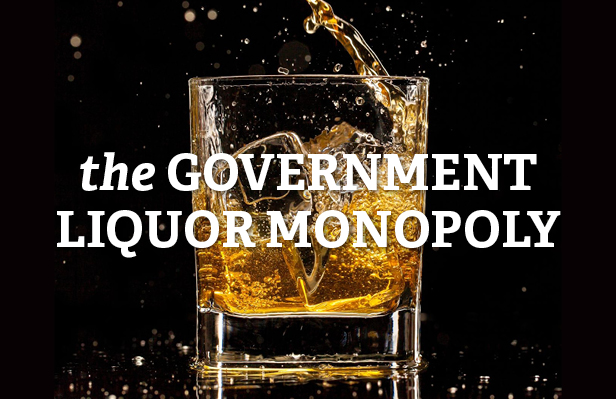Media

Fact Sheet: Leveraging Liquor Privatization to Balance the Budget
Last year, lawmakers loosened Pennsylvania’s monopolistic grip on wine and liquor sales with the passage of Act 39. However, the Pennsylvania Liquor Control Board (PLCB) still maintains a high degree of control. Full privatization could raise more than $1 billion and would limit the power of the problem-plagued PLCB. Less robust reforms would provide anywhere from $1 million to $329 million in revenue to address this year’s state budget shortfall.
The PLCB’s Troubling Finances
- In 2015-16, the PLCB transferred $583.6 million to the General Fund. Approximately 83 percent of the money transferred came from liquor and sales taxes, which would remain in a private system.
- The PLCB’s operating expenses have risen by 22 percent since 2011-12.
- In 2016-17, the PLCB will dip into its reserves to meet a request to transfer more money to the General Fund. The agency projects a decline in reserves from $295 million to $183 million.
- Total liabilities increased by $105.4 million for the year, due largely to the agency’s pension obligations. The PLCB ended the year approximately $238.2 million in the red.
Border Bleed Results in Lost Revenue, Taxes
- According to a 2010 study, 23.6 percent of the wine purchased by consumers in Pennsylvania comes from out-of-state. This resulted in a loss of $17.3 million in tax revenue.
- A 2011 analysis from the Distilled Spirits Council of the United States estimated that Pennsylvania residents’ “cross border purchases” contribute to a loss of $313 million in retail revenue annually.
- In a 2011 survey, the PLCB found 45 percent of residents in Philadelphia and the surrounding counties purchased wine or liquor outside the state. This border bleed is estimated to cost the state $220 million in sales and taxes—just in Southeastern Pennsylvania.
Letting Private Retailers and Wholesalers Sell Liquor Would Help Balance the Budget
- HB 991 – Authorizes the distribution of liquor and wine retail licenses, allowing private businesses to compete with state stores. This significant change could raise an additional $329 million in license fees for 2017-18.
- HB 1075 – Divests both the wholesale wine and liquor systems. This proposal could generate approximately $182.4 million this upcoming fiscal year.
- HB 975 – Divests just the wholesale wine system and permits all grocery stores to sell wine once they acquire a license. The legislation is projected to raise $178.2 million next fiscal year.
- HB 438 – Establishes an expanded spirits permit, which can be purchased by holders of a restaurant or hotel liquor license. This reform would raise $898,000 in fiscal year 2017-18.
Conclusion
Act 39 fell far short of full privatization and the “modernization” of state stores is proving to be a financial flop, generating just 29 percent of the revenue originally projected.
Lawmakers can improve upon Act 39 and reduce the deficit by embracing what 66 percent of Pennsylvanians want: a private liquor system that offers selection, convenience, and competitive pricing.